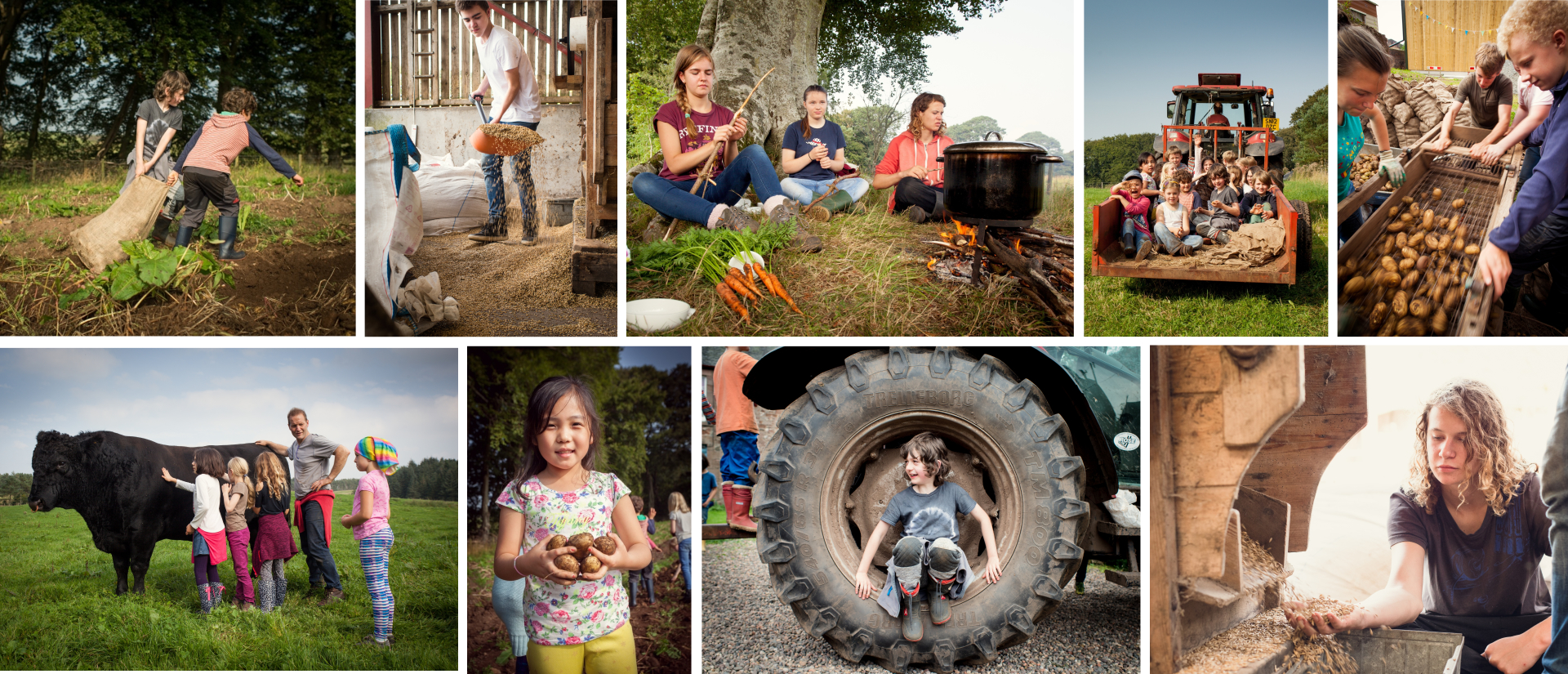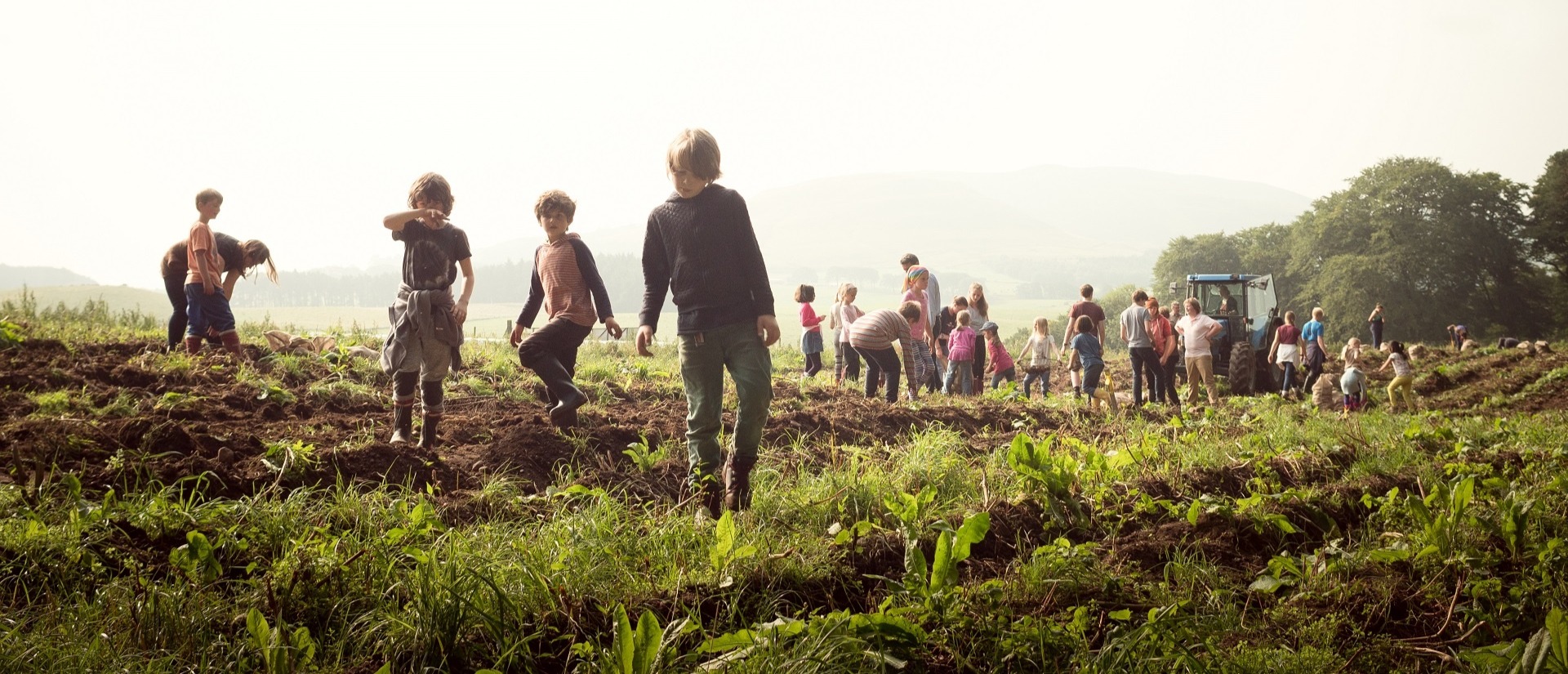Farming in the curriculum
“Every primary school in Britain should be twinned with a farm to give school children a clear understanding of how food is produced”, says naturalist Chris Packham in his manifesto for wildlife. Edinburgh Steiner pupils, from age 8, get their hands in soil on a local organic farm; later spending time immersed in farm life, ploughing fields, milking cows, harvesting crops.
Farming is part of the Edinburgh Steiner School curriculum. In Class 3 pupils study a Farming Main Lesson, part of which is a visit to the certified biodynamic organic Garvald Home Farm in the Borders. Class 9 traditionally begin the new session with an extended visit of two to three weeks, during which they undertake a wide range of work, and gain a real sense of the day-to-day graft of food production, sustainable agriculture, as well as the environmental impact.
Our holistic and cross-curricular approach to education, develops responsible, creative and freethinking young people, who will contribute to society and a sustainable environment with vision and purpose.
The children not only pursue academic learning, achieving results high above the national average, but also engage in many practical and creative lessons, which develop skills invaluable to their future. In addition to their hands-on experience of farming, pupils get weekly gardening lessons, where they are given the opportunity to tend to their own plots and are encouraged to use the self-grown and harvested fruits, vegetables and herbs to prepare school meals. This reinforces the teaching of sustainability and the belief in self-reliance.
Primary schools pairing with a farm is just one of Packham’s asks. Another calls for a tax on pesticides. Biodynamic agriculture is a Demeter certified form of organic farming, employing compost as fertilizer and avoiding most pesticides, incorporating concepts drawn from the ideas of Waldorf schools founder, Rudolf Steiner, who sowed the seeds of what he hoped would blossom into a new culture through his Agriculture Course.
All biodynamic farmers and growers practice organic methods of production, and share very similar certification standards. The biodynamic principles of agriculture encourage us to look to the cosmos before planting and harvesting crops. The biodynamic calendar – which identifies ‘Root’, ‘Flower’, ‘Leaf’ and ‘Flower’ days – is based on the positioning of the stars and the moon.
A biodynamic farm is considered to have its own identity and be a self- sustaining organism in its own right. A fundamental principle worked towards is thus to be a ‘closed loop’ system that does not need to buy in feed or fertility from external suppliers, or one that is stretched beyond its natural capacity.
King Charles III has been a longstanding advocate of biodynamic farming principles. Learning about biodynamics during a trip to Australia twenty years after converting , Charles subsequently organised workshops for the farmers and gardeners who worked his land in Duchy of Cornwall and at Highgrove Estate in Gloucestershire, which he had converted to organic in 1985; and was the key speaker at the Soil Association’s 50th anniversary in 2015, where he attacked conventional “industrial” agricultural techniques and strongly promoted organic farming. The following year, he spoke at the Biodynamic Agriculture Conference in Milano, Italy, showing his deep ecological and also spiritual understanding and the role of agriculture for a sustainable future; and gave the opening address to the International Biodynamic Agriculture Conference in Switzerland in 2017. Visit Biodynamic vs Organic on the Biodynamic Association’s website for a more in-depth distinction.
Edinburgh Steiner School pupils on a local certified biodynamic farm twenty miles from the school gates.


